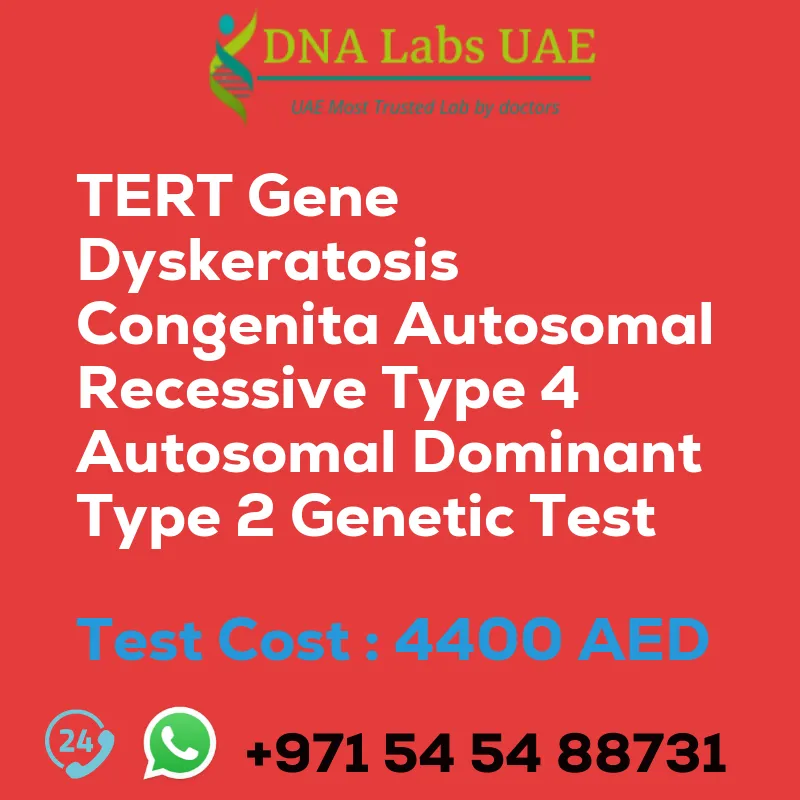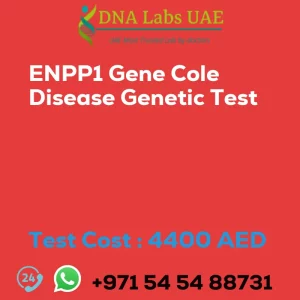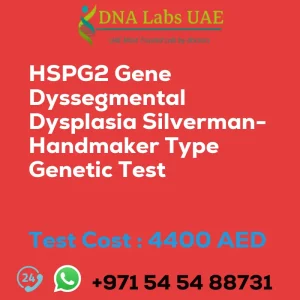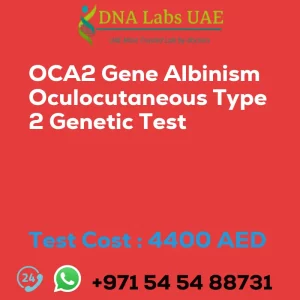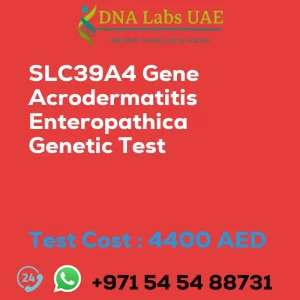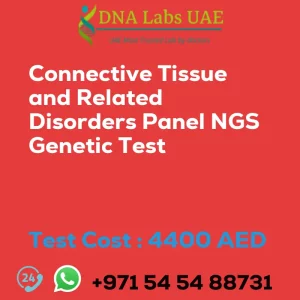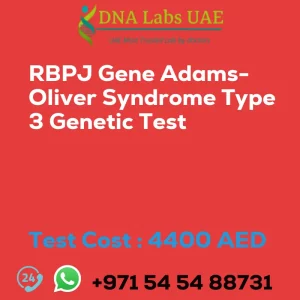TERT Gene Dyskeratosis Congenita Genetic Test
At DNA Labs UAE, we offer the TERT Gene Dyskeratosis Congenita Genetic Test for individuals who suspect they may have autosomal recessive type 4 (AR DC4) or autosomal dominant type 2 (AD DC2) Dyskeratosis Congenita (DC).
Test Details
Dyskeratosis congenita is a rare genetic disorder that affects multiple body systems, including the skin, nails, and bone marrow. It is characterized by abnormal changes in these tissues, leading to various symptoms and complications. The TERT gene is responsible for producing an enzyme called telomerase reverse transcriptase, which plays a crucial role in maintaining the length and stability of telomeres, the protective caps at the ends of chromosomes.
Mutations in the TERT gene result in reduced telomerase activity, leading to the progressive shortening of telomeres over time. This affects the ability of cells to divide and function properly, causing the characteristic features of DC.
Our TERT Gene Dyskeratosis Congenita Genetic Test utilizes Next-Generation Sequencing (NGS) technology to analyze the TERT gene for mutations. By sequencing the DNA of an individual, we can identify any variations or abnormalities in the TERT gene sequence. This information can confirm a diagnosis of DC and provide insights into the specific genetic mutation causing the condition.
Test Components
- Price: 4400.0 AED
- Sample Condition: Blood or Extracted DNA or One drop Blood on FTA Card
- Report Delivery: 3 to 4 Weeks
- Method: NGS Technology
- Test Type: Osteology Dermatology Immunology Disorders
- Doctor: Dermatologist
- Test Department: Genetics
Pre-Test Information
Prior to undergoing the TERT Gene Dyskeratosis Congenita Genetic Test, it is recommended to provide the clinical history of the patient who is going for the test. Additionally, a genetic counseling session will be conducted to draw a pedigree chart of family members affected with TERT Gene Dyskeratosis Congenita. This will help in understanding the inheritance pattern and guiding the testing process.
Benefits of Genetic Testing
Genetic testing for Dyskeratosis Congenita can provide several benefits, including:
- An accurate diagnosis of the condition
- Guidance for treatment decisions
- Genetic counseling for affected individuals and their families
- Carrier testing for individuals with a family history of DC
It is important to consult with a healthcare professional or a genetic counselor to discuss the benefits, limitations, and implications of genetic testing before undergoing the procedure.
| Test Name | TERT Gene Dyskeratosis congenita autosomal recessive type 4 autosomal dominant type 2 Genetic Test |
|---|---|
| Components | |
| Price | 4400.0 AED |
| Sample Condition | Blood or Extracted DNA or One drop Blood on FTA Card |
| Report Delivery | 3 to 4 Weeks |
| Method | NGS Technology |
| Test type | Osteology Dermatology Immunology Disorders |
| Doctor | Dermatologist |
| Test Department: | Genetics |
| Pre Test Information | Clinical History of Patient who is going for TERT Gene Dyskeratosis congenita, autosomal recessive type 4/ autosomal dominant type 2 NGS Genetic DNA Test. A Genetic Counselling session to draw a pedigree chart of family members affected with TERT Gene Dyskeratosis congenita, autosomal recessive type 4/ autosomal dominant type 2 NGS Genetic DNA Test gene TERT |
| Test Details |
Dyskeratosis congenita (DC) is a rare genetic disorder that affects multiple body systems, primarily the skin, nails, and bone marrow. It is characterized by abnormal changes in these tissues, leading to various symptoms and complications. There are several types of DC, with autosomal recessive type 4 (AR DC4) and autosomal dominant type 2 (AD DC2) being two of them. These types are caused by mutations in the TERT gene, which provides instructions for making an enzyme called telomerase reverse transcriptase. Telomerase is involved in maintaining the length and stability of telomeres, which are protective caps at the ends of chromosomes. Mutations in the TERT gene result in reduced telomerase activity, leading to the progressive shortening of telomeres over time. This ultimately affects the ability of cells to divide and function properly, causing the characteristic features of DC. NGS (Next-Generation Sequencing) genetic testing is a diagnostic tool used to identify mutations in genes associated with genetic disorders. In the case of DC, NGS can be used to analyze the TERT gene for mutations and determine if a person has AR DC4 or AD DC2. NGS involves sequencing the DNA of an individual to identify any variations or abnormalities in the TERT gene sequence. This can help in confirming a diagnosis of DC and providing information about the specific genetic mutation causing the condition. It can also be used for carrier testing in individuals with a family history of DC. Genetic testing for DC can be helpful in providing an accurate diagnosis, guiding treatment decisions, and offering genetic counseling to affected individuals and their families. It is important to consult with a healthcare professional or a genetic counselor to discuss the benefits, limitations, and implications of genetic testing before undergoing the procedure. |

